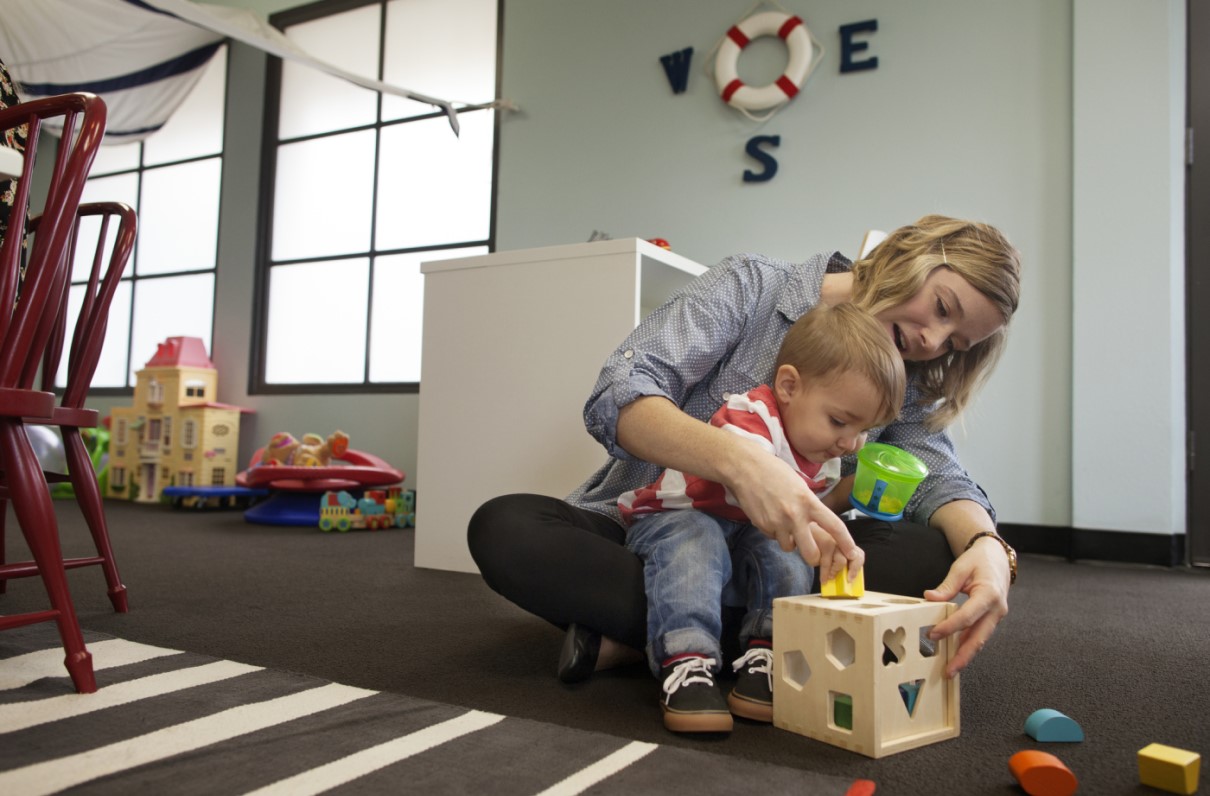Affordability and availability of child care has been at the forefront of national conversations. At the 2020 Virtual Military Family Summit, hosted by the Congressional Military Family Caucus, MOAA briefed military families and members of Congress on the child care issues military families face and advocacy work we are doing to address these challenges.
Many military families struggle to find child care that fits the demands of their military lifestyle. Servicemembers can often work nontraditional hours, including weekends, and be called into work or onto a deployment with very short notice. During a PCS, many families discover a six-month waitlist at their new installation with few options for support.
Not every military family can afford the expenses of drop-in hourly care or nanny services; for some, au pairs provide an affordable option that fits the unpredictable needs of many military families. A MOAA-endorsed Senate bill will make it easier for these families to get the help they need.
With child development center (CDC) waitlists and hard-to-find child care on the economy, it is essential that military families have as many options as possible. However, a travel ban triggered by the COVID-19 pandemic prevents J-1 visa holders from entering the country. Au pairs fall into this category.
[RELATED: Civilian Child Care Problems Impact Military Families. Congress Can Help]
When the J-1 visa ban went into effect, the National Military Family Association (NMFA) heard concerns from military families and led efforts to address the gap, which MOAA supported.
“Au pairs provide unique support – they can provide overnight and flexible help during deployments, military moves, and even extra support for families of wounded, ill, or injured servicemembers,” said Nicole Russell, deputy director of government relations at NMFA. “For families with medically fragile and special needs children, au pairs can be the only child care solution that keeps a family safe.”
“These families have continued to serve our nation throughout the pandemic, but because of the J-1 visa ban, they have done so without the support they need at home,” Russell added. “We hope for a quick resolution so that our military can stay focused on their mission knowing their children are in good hands.”
S. 4842, introduced Oct. 21 by Sen. Tammy Duckworth (D-Ill.), would exempt J-1 visa holders from the travel ban if they are au pairs serving military families. The Department of Homeland Security still could deny entry on a case-by-case basis but would need to provide written justification for the denial to Congress as an additional oversight mechanism.
[RELATED: MOAA's MilSpouse Remote Telework Grant Program]
While the current bill language states the exemption would be for those in the “Armed Services”, MOAA and other military service organizations are advocating to revise this language to “Uniformed Services” to include all eight service branches.
MOAA continues to take a multiprong approach to improving cost and access to child care for military families.
MOAA Knows Why You Serve
We understand the needs and concerns of military families – and we’re here to help you meet life’s challenges along the way. Join MOAA now and get the support you need.

